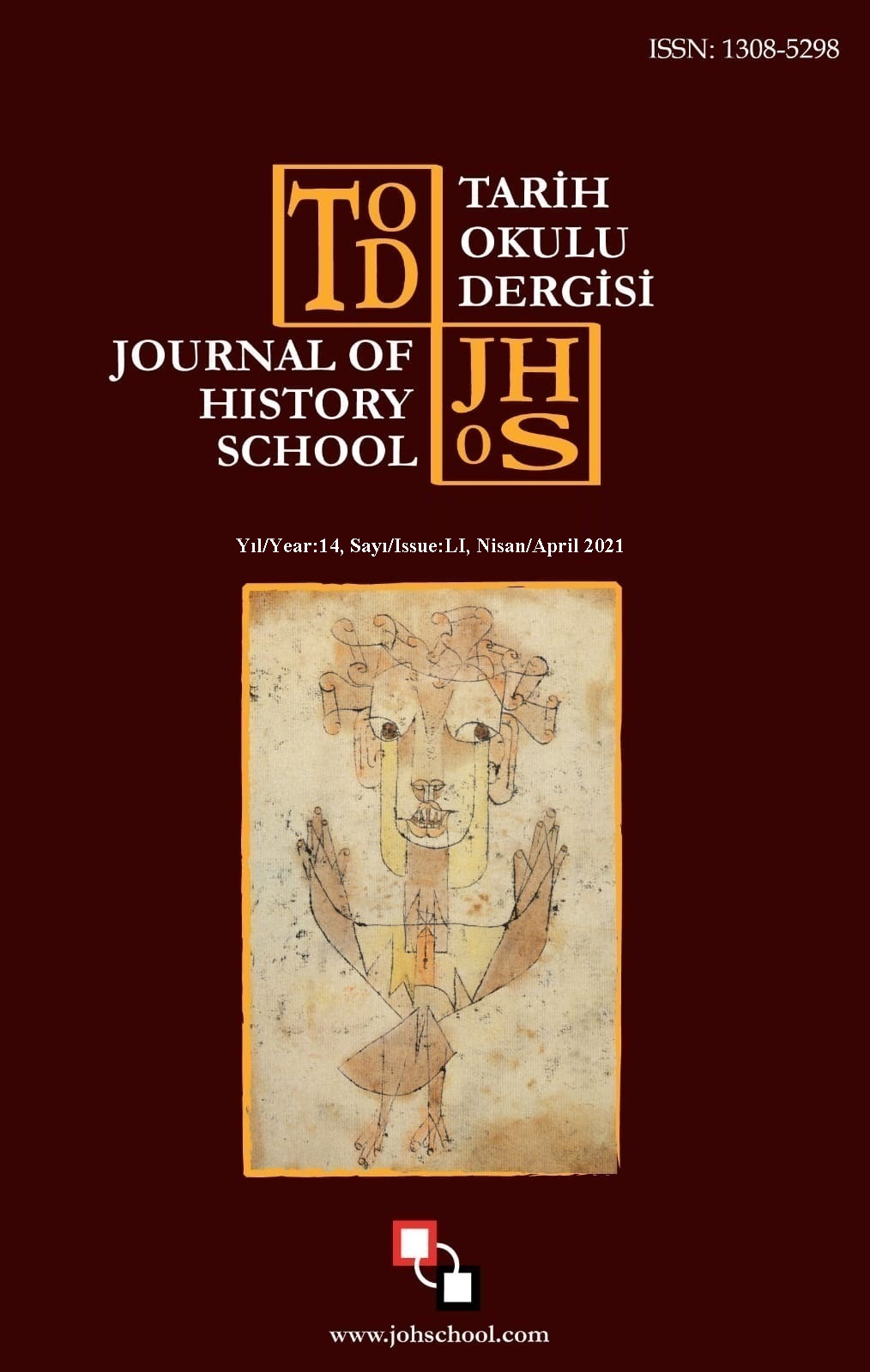MODERNLEŞMENİN “MODERN” BİR ELEŞTİRİSİ OLARAK YENİ TOPLUMSAL HAREKETLER VE YENİ KAVRAM ÖNERİSİ: “YENİ TOPLUMSAL EYLEMSİZLİK MODELİ”
Author :
Abstract
Bu makalede, işçi ve sınıf temelli eski (geleneksel, klasik) toplumsal hareketlerden ayrı olarak ortaya çıkan “yeni toplumsal hareketler” incelenmiştir. Yeni toplumsal hareketler kültürel ve kimlik temelli, merkezi ve lideri olmayan, şiddetsiz (nonviolent), gönüllülüğe dayalı, her sınıf ve eğitim düzeyinden büyük kitlelerin katılımıyla ortaya çıkan ve süreklilik taşıyan hareketler olarak tanımlanmaktadır. Bu hareketlerin bir başka özelliği de, birbirine zıt görüşteki çok farklı siyasal düşüncedeki insanları biraraya getirebiliyor olmasında yatmaktadır. “Yeni” toplumsal hareketler toplumsal roller, iletişim ağları ve örgütlenmeler altında oluşan parçalar olarak karşımıza çıkmaktadır. Yeni toplumsal hareketlerin incelenmesi daha çok Wallerstein, Touraine, Dahrendorf, May, Lukacs, Melucci, Offe, Foucault, Laclau-Mouffe, Epstein, Plotke, Hobsbawn ve Castells üzerinden kimlik, enformasyon çağı, ekonomi-toplum ve kültür çalışması anlayışı ekseninde gerçekleştirilmiştir. Makalede siyasal ve sosyoekonomik bağlamın dışında kalan ve modernleşmenin “modern” bir eleştirisi olarak Yeni Toplumsal Hareketlerin niteliği, kültürel toplumsal bir direniş oluşu incelenmiştir. Tezimin bulgularından hareketle, Yeni Toplumsal Hareket (YTH) modeli yanında “Yeni Toplumsal Eylemsizlik”® (YTE) modeli/kavramı önerisinde bulunuyorum. Çünkü, YTH’lerde toplumsal roller, iletişim ağları ve aktif örgütlenmeler söz konusu iken, araştırmamız yeni bir oluşum olan “gönüllü televizyon kanalı” modelinde aktif örgütlenme yerine “pasif/negatif örgütlenme” olduğunu ortaya çıkarmıştır. Yeni bir toplumsal hareket modeli olarak görülen“gönüllülük” esaslı televizyon kanallarının muhalif kitlelerin tepkilerini konsolide edip (kontrol altında tutup) “eylemsizleştirerek” iktidarlara yarayıcı işlev gördüğü söylenebilir. Makale, doktora tezimden üretilmiştir.
Keywords
Abstract
This article examines the "new social movements" that emerged separately from the old (traditional, classical) social movements based on worker and class. New social movements are defined as cultural and identity-based, decentralized and non-leader, nonviolent, voluntary, emerging with the participation of large masses of all classes and educational levels and carrying continuity. Another feature of these movements is that they can bring together people of very different political views with opposing views. “New” social movements emerge as parts formed under social roles, communication networks and organizations. The study of new social movements was mostly carried out through Wallerstein, Touraine, Dahrendorf, May, Lukacs, Melucci, Offe, Foucault, Laclau-Mouffe, Epstein, Plotke, Hobsbawn and Castells. In the article, it is aimed to contribute to science by proposing a new concept ("New Social Inertia Model"), according to the findings of the field research while examining New Social Movements as a "modern" critique of modernization, which is outside the political and socioeconomic context. The article was produced from my doctoral dissertation. Based on the findings of my thesis, I propose a “New Social Inertia”® (NSI) model / concept as well as the New Social Movement (NSM) model. Because, while social roles, communication networks and active organizations are in question in NSMs, our research has revealed that there is "passive/negative organization" instead of active organization in the "voluntary television channel" model, which is a new formation. It can be said that the television channels based on "volunteerism", which is seen as a new model of social movement, have a beneficial function for the governments by consolidating (keeping them under control) and "deactivating" the reactions of the opposition masses. The article was produced from my doctoral dissertation.





